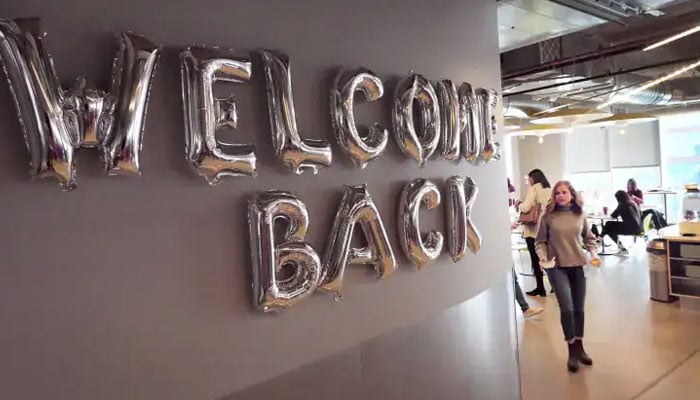Post-Covid norm: Hybrid work to become permanent fixture?
Google, Amazon, Disney, and Starbucks are among the companies that have recently tightened in-office rules
Hybrid work is increasingly becoming the new normal in the post-covid-19 era as employees insist on working from the comfort of their homes for multiple benefits. However, companies, striving to maintain proper office decorum, continue to grapple with return-to-office mandates.
The COVID-19 pandemic has forced companies to rethink the way they work, and many are now embracing hybrid work as the new normal. This means that employees have the flexibility to work from home on some days and in the office on other days.
However, Google, Amazon, Disney, and Starbucks are among the companies that have recently tightened in-office rules. Elon Musk opposed the Work from Home. In an interview with CNBC’s David Faber last month, he called remote work “morally wrong” and required Tesla corporate workers to resume working from the office in person.
However, experts say that forcing employees back to the office will only lead to backlash and attrition. Instead, companies should offer hybrid work arrangements that give employees the flexibility to work from home some days and in the office on other days.
"Companies need to be empathetic when communicating their RTO plans to employees," says Deborah Grayson Riegel, a leadership and communication expert. "They need to understand that for many people, returning to the office is a loss. They're losing the flexibility and autonomy they've enjoyed over the past two years. They're also losing the social interaction that they've come to rely on."
"Companies should also be prepared to adapt their RTO plans as needed," says Milena Berry, co-founder and CEO of PowerToFly, a diversity recruitment and retention platform. "The future of work is uncertain, and what works today may not work tomorrow. Companies need to be willing to listen to their employees and make changes as needed."
There are many benefits to hybrid work for both employees and employers. For employees, it can offer a better work-life balance, reduced commuting costs, and more flexibility. For employers, it can help to attract and retain top talent, reduce real estate costs, and improve productivity.
The backlash against RTO mandates is growing. A recent survey found that 60% of employees would consider quitting their job if they were required to return to the office full-time.
Companies that are serious about retaining top talent need to offer hybrid work arrangements. This is the best way to meet the needs of employees and ensure that they are productive and satisfied.
"Hybrid work is the future of work," says Berry. "It's the best way to give employees the flexibility they need to be productive and happy."
Riegel agrees. "Hybrid work is the only sustainable solution," she says. "It's the best way to meet the needs of both employees and employers."
As companies continue to grapple with RTO mandates, it is clear that hybrid work is the best long-term solution. By offering hybrid work arrangements, companies can meet the needs of their employees and ensure that they are productive and satisfied.
-
Trump’s tariff turmoil yet to significantly dent growth in emerging economies, despite raising trade tensions
-
Kash Patel fires FBI officials behind Trump Mar-a-Lago documents probe, reports say
-
Cuban government says boat full of armed men fired on border guards, killing 4
-
FIFA World Cup security concerns spike after recent cartel violence in Mexico
-
Passenger wins £10,000 payout from Heathrow Airport after 100 ml liquids dispute
-
Chinese astronauts finally reveal why spacecraft left them ‘stranded’ for 437 days in space
-
Sinitta makes shock admission about marriage to Andy Willner post Simon Cowell heartbreak
-
Bill Gates calls ties to Jeffrey Epstein 'huge mistake,' reveals past 'affairs'












